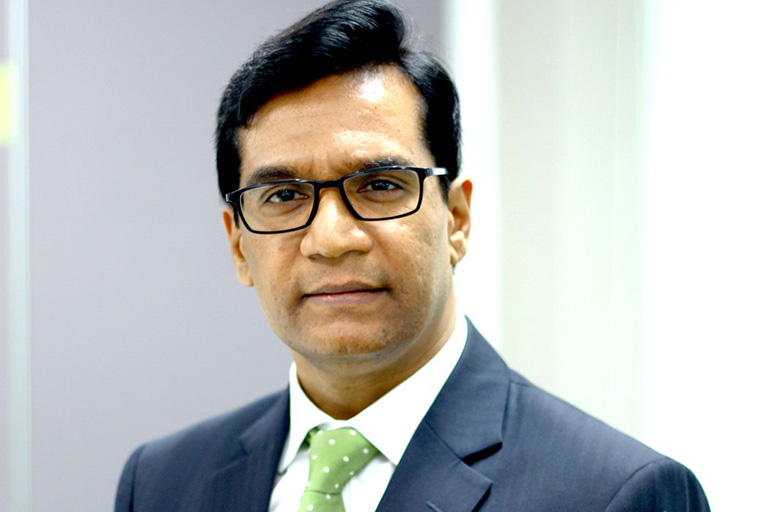Business continuity post-COVID: Adapt to the ‘now’ to thrive in the ‘next’
Rohit Mahajan, President, Risk Advisory, Deloitte India, believes that amidst the business continuity challenges that are affecting companies post-COVID, the pace of recovery of organisations has been directly proportionate to the decisions taken by their senior leadership team. He adds that resilient leadership will play a huge role to build resilient organisations.

IBT: What impact has COVID-19 had on your firm’s managerial operations? What strategies have you planned in order to tide over this crisis?
Rohit Mahajan: The COVID-19 pandemic was unprecedented in its speed, scope and intensity and has hit businesses across the globe, hard. Since this pandemic impacted the entire business ecosystem, most Business Continuity Plans developed were not very effective and were not prepared to take the overall impact of businesses into consideration.
With sustained volatility and instability, all of us are unsure when, or rather if, things will ever go back to the way they were before the pandemic. We are seeing an influx of clients coming to us with their business challenges, and as we are working with them to ensure they are addressed and mitigated, we have also re-looked at our business strategies and operating models to ensure we are keeping afloat.
At Risk Advisory, we always look at risks as growth enablers. Looking from that same lens, the pandemic has accelerated our journey towards significant increase in technological investments, skill development and innovative operating models.
I also believe that a large part of how quickly organisations have been able to bounce back from this crisis has been directly proportionate to the decisions taken by their senior leadership team. We use this term, ‘resilient leadership’, and in my opinion, this will play a huge role to build resilient organisations.
For us at Risk Advisory, our people are our first priority. Their safety and well-being is imperative for us to succeed in this ‘new normal’. There is constant two-way communication encouraged and implemented by the leadership team through various platforms, to all our people along with multiple initiatives to ensure employee well-being.
IBT: Be it emotionally, financially or in terms of health – the pandemic has taken a toll on employees across the nation. In your opinion, how should employers keep the morale of their workforce high, while achieving productivity goals?
Rohit Mahajan: I will be very honest; it has been extremely challenging. Luckily, there has been significant acceptability of this new normal by our employees.
We also realised early on that in order to keep the morale and motivation of our people high, we would need to keep them engaged. Staying engaged does not mean only working on professional tasks, but also taking the time to step back and connect with your colleagues and leaders.
We have set up a 24X7 COVID-19 helpline for our people as well as their families, where they can pick up the phone and speak to a trained counsellor or psychiatrist. We have also focussed on various well-being initiatives, such as online workout classes, wellness webinars and check-in calls.
We have joined hands with various online learning platforms to encourage our workforce to upskill and have also built an in-house learning portal which helps professionals chart out their career path based on their interests and choices, shifting traditional classroom-based learning to virtual interactive sessions.
Since the lockdown has extended far beyond initial estimates, our focus is now shifting to candid conversations. We are focussing on coaching and emotional support to make sure our employees don’t feel alone or helpless.
We also understand that this extended duration has taken a toll on many of our people, as trying to balance household chores with work is increasingly becoming a challenge. Keeping this in mind, we have relaxed our policies with respect to our people logging in at a time convenient to them or following their own work schedule.
The pandemic has also made us focus on what really matters and we have made a deliberate effort to celebrate achievements, however small, more often. This breaks the monotony of work and adds little moments of joy and positivity in our lives.
These initiatives have made a huge difference to our people and we have seen this through increased productivity, levelled up communication skills and greater focus on work with effective outcomes.
This may seem like a paradox, but in order to take care of our employees’ emotional well-being, we are embracing technology in a big way. We have an artificial intelligence bot that reminds you – through a pop up on your screen – to take a sip of water, or pick up the phone and greet a fellow colleague. It’s all very new, but also very interesting!
IBT: Before the crisis, quite a few companies lacked formal policies pertaining to remote working. However, now that this style of work is here to stay, for at least some more time, how are you planning to regulate the conduct of your employees? Are you planning to redesign contracts to encompass employee conduct in a WFH set up?
Rohit Mahajan: Yes, we are redesigning some of our policies. Work from home policies have been revisited, policies around medical insurance have been re-examined, and policies around the use of technology have been reconsidered. Now that we have been forced to work from home in a flexible environment, these policies are being updated to keep up with the present reality.
IBT: How is data sensitivity and confidentiality being ensured in this kind of a setup?
Rohit Mahajan: Being a professional services firm that advises clients to protect their data, we have to ensure our house is in order. Being sensitive towards confidential data and intellectual property is something that is now part of our DNA and second nature.
We already had policies and guidelines around data confidentiality and intellectual property protection, including specific quarterly and yearly trainings to reinforce them. Since COVID-19 is here to stay, the sooner we adapt to this ‘now’, the more effectively we will be able to thrive in the ‘next’.
Rohit leads the Risk Advisory practice for Deloitte India. He has over 21 years of experience in advising companies across jurisdictions in India and globally (US, Europe and Asia Pacific).
Rohit’s career graph has steered towards multiple business practices including Risk Advisory, Financial Assurance, Anti-Bribery and Anti-Corruption Management, Dispute Advisory Services, Global Service Delivery Model, Legal Entity Controllership, Fraud Investigation, Risk Assessments, and Regulatory Compliance. His experience spans across varied sectors such as Financial Services, Infrastructure, Telecom, Government, Consumer Markets and Private Equity.
Prior to this role, he was the Asia Pacific (APAC) Forensic Leader representing APAC in Global Forensic EXCOM and was also the Head of Forensic practice for Deloitte India. He led a number of international investigation engagements for Indian companies operating in and outside India and holds experience in the assessment of investment potential and bankability of projects under the relevant investment environment and regulations. Rohit is also the Associate Member of Institute of Chartered Accountants, India.













Leave a comment